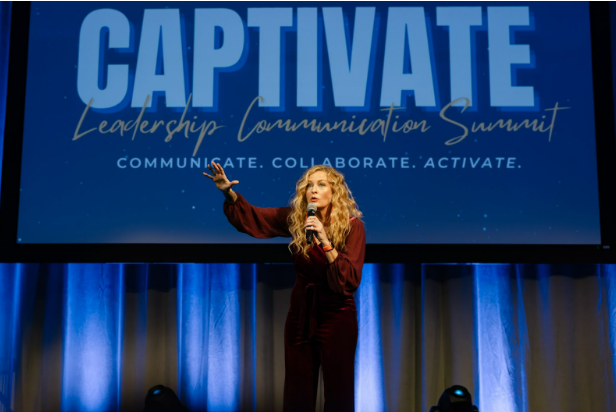How Improv Enhances Leaders' Self-Awareness
Improv enhances leaders’ self-awareness by fostering crucial skills and mindsets that contribute to effective leadership. In a study conducted by Ginka Toegel and Jean-Louis Barsoux, the authors of “How To Become a Better Leader,” published in the MIT Sloan Management Review, they explore the significance of self-awareness in the process of personal development and the formulation of coping strategies for addressing weaknesses. According to their research, 75 members of the Stanford Graduate School of Business Advisory Council identified self-awareness as the most crucial capability for leaders to cultivate.
Therefore, if leaders actively improve their self-awareness, they are more likely to develop effective coping strategies for weaknesses, leading to overall leadership enhancement. So here’s a tip to help leaders practice self-awareness.
6 Self-Awareness Tips Incorporating Improv Insights
1. Stay Open-Minded and Objective
Improv enhances leadership self-awareness by fostering an open-minded and objective approach. Embracing uncertainty and unexpected ideas during improvisation exercises helps leaders cultivate adaptability. Actively seeking diverse perspectives and remaining receptive to feedback contributes to a leadership style that is grounded in self-awareness.
2. Keep Your Focus on the Main Goal
In the world of improv, where there is often no script, the main goal is to create a cohesive and entertaining performance. This principle translates to leadership self-awareness by emphasizing a clear focus on organizational objectives. Leaders can enhance their self-awareness by aligning actions with overarching goals, adapting strategies as needed, and staying agile without losing sight of the end goal.
3. Get a Good Grasp on Your Own Strengths and Weaknesses as a Leader
Improv provides leaders with insights into their strengths and weaknesses, fostering self-awareness. By regularly evaluating their performance and understanding personal strengths, leaders can leverage their abilities effectively. Simultaneously acknowledging weaknesses promotes humility and a commitment to continuous improvement, reflecting a leadership self-awareness that embraces ongoing self-discovery.
4. Acknowledge Any Emotional Triggers You May Have
Improv demands emotional intelligence and awareness, contributing to leadership self-awareness. Leaders can enhance this awareness by acknowledging and understanding their emotional triggers. Recognizing situations that evoke strong emotional responses allows leaders to proactively manage reactions, contributing to better decision-making. This awareness fosters a positive team environment and demonstrates leadership self-awareness in emotional intelligence.
5. Continuously Encourage Constructive Feedback from the Team
Improv’s collaborative nature aligns with the leadership self-awareness principle of seeking and encouraging feedback. Actively promoting open communication and valuing constructive feedback provides insights into the impact of leaders’ actions and decisions. Embracing feedback enhances leadership self-awareness, helping leaders identify blind spots, refine their style, and foster a culture of continuous improvement within the organization.
6. Work on Your Self-Discipline
Improv’s demand for quick thinking, adaptability, and discipline directly contributes to leadership self-awareness. Leaders can enhance their self-awareness by cultivating discipline in their approach to challenges. Practicing self-control and maintaining focus on strategic priorities not only improves decision-making but also develops a heightened awareness of leaders’ capabilities. This disciplined approach enables leaders to navigate complexities with composure, showcasing a strong sense of leadership self-awareness in high-pressure situations.
Unlock Your Leadership Potential Through Improv
Improv can make leaders more aware of themselves by teaching important skills. The tips, like staying open-minded and focusing on goals, help leaders understand their strengths and weaknesses, control emotions, and improve communication. By using these tips, leaders can navigate challenges better and create a positive team environment.
If you’re curious about how improv can benefit your leadership, consider exploring this unique approach. Connect with someone experienced in improv to learn more about its practical applications in leadership. It’s a chance to enhance your skills in a fun and interactive way.




